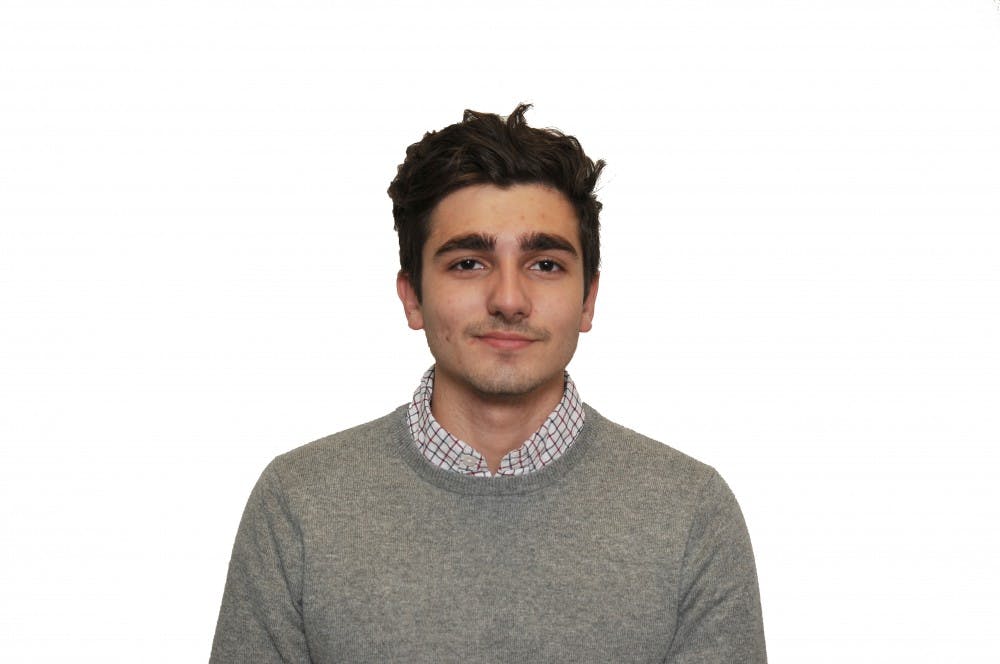By the time this article is published, Pope Francis will be in Philadelphia. While that may excite a huge portion of the school, as it should, I’ve noticed that there’s a portion of students that have simply been uninterested in the pope’s arrival simply because they’re not religious. However, I believe that the pope’s visit to America is about more than just religion. Unlike popes of the past, Francis isn’t a missionary intent on increasing the power of the Roman Catholic Church, but instead just preaches the morals of his religion. In short, Francis doesn’t particularly care whether you believe in a different God or no God at all. He simply preaches a moral code that may be inspired by his faith but one that resonates with many people across the world.
It’s very easy to connect Catholicism and other Judeo-Christian religions with hatred or discrimination after seeing events like Kim Davis’ refusal to grant marriage licenses to homosexual couples and the Westboro Baptist Church’s notorious protests. But religion in its purest form isn’t malicious. What must be emphasized is that the main function of early religion was to provide a form of comfort to human beings. No matter how fanciful or unlikely many origin stories in different religions seem, they all serve the purpose of answering the most fundamental questions in humanity: Who are we, why are we here, what is our purpose and how should we live?
Pope Francis certainly believes that we should live a certain way, but as a pope, he doesn’t have any more power than to give suggestions. Of course, Francis is by definition the most powerful figure in the Catholic Church, but religion is not nearly as controlling as it has been in the past. Those who are not Catholic and do not believe in the same things as Francis are not required to abide by his rules. Francis has promoted a wave of tolerance and conscientiousness in Catholicism that has denounced using religion as an impetus for hatred, and by doing so he has modernized the Catholic Church tremendously. For instance, when asked about the presence of gay priests, Francis replied, “If someone is gay and he searches for the Lord and has good will, who am I to judge?”
Some may argue that the pope’s insistence to become involved in more political issues, such as his conversations on hot button topics like abortion and homosexuality, is unwarranted and out of line. But as an influential voice to quite literally billions of people, silence on his part would actually seem inappropriate, as many people want to hear his answers on controversial topics.
When he speaks at the World Meeting of Families, the pope will have opinions on social issues that some of us students may not agree with, and some that we may fully endorse. But regardless of whether or not your philosophies are in line with Pope Francis, he is an important global figure who simply wants to impart wisdom from his own life and experience on anyone who is willing to listen. Francis most likely understands that many of the people who come to see him on either Saturday or Sunday aren’t necessarily religious, but that also probably won’t affect him since most of his messages aren’t religion-specific. When Pope Francis says that you should let love be one of the most important factors in your life and that you should strive to help those with fewer opportunities than yourself, he isn’t spouting strictly Catholic rhetoric — he is discussing ideas that may be a very big part of our lives, even if we don’t identify as Catholics.
An analogous situation would be when a figure like the Dalai Lama comes to visit Philadelphia in October. While many of us may not be extremely familiar with Tibetan Buddhism, interest in the teachings of the Dalai Lama has been so high perhaps because of this unfamiliarity. Someone like the Dalai Lama can bring a perspective that we in Western society have never seen before, and while Pope Francis’ teachings may not seem as exotic to us, he represents an ideological shift in the Catholic Church and therefore can give us a perspective on life just as unique.
I personally am not particularly religious despite being born Catholic, but nevertheless I intend on making an effort to see Pope Francis speak, if anything because this is his first visit to America and will be a historic event. Even if religion has never been important to you, all I ask is that you not refuse to see Francis solely based on his religious principles. One of the most important things we can do as academics is to hear out all points of view, and the religious teachings of a man as smart and gracious as Pope Francis shouldn’t be any different.
ALESSANDRO VAN DEN BRINK is a College freshman from New York, studying economics. His email address is alevan@sas.upenn.edu
The Daily Pennsylvanian is an independent, student-run newspaper. Please consider making a donation to support the coverage that shapes the University. Your generosity ensures a future of strong journalism at Penn.
DonatePlease note All comments are eligible for publication in The Daily Pennsylvanian.









